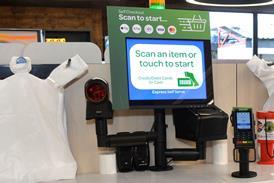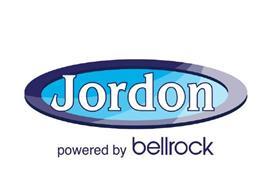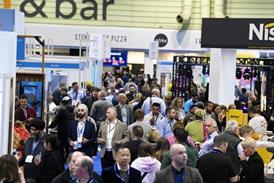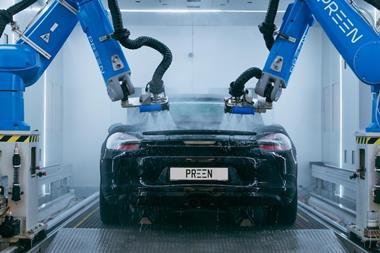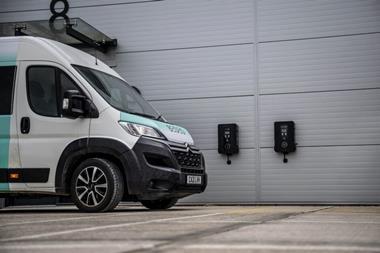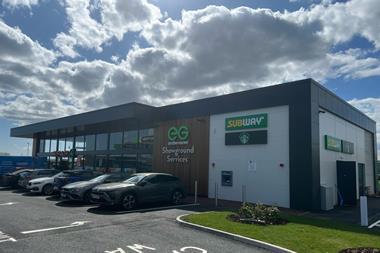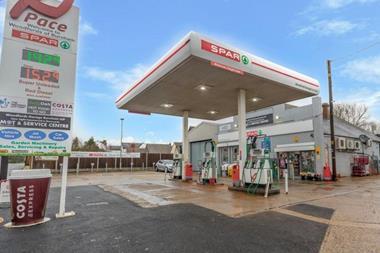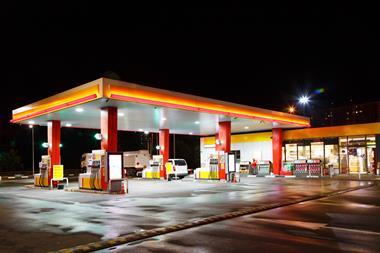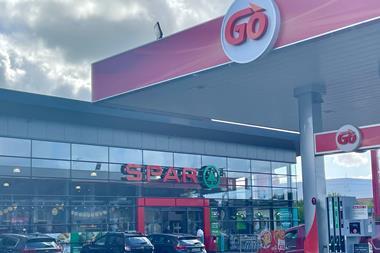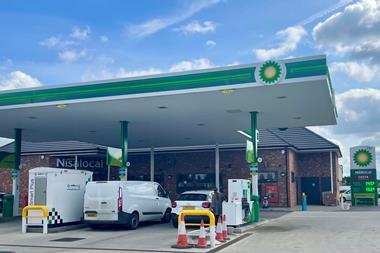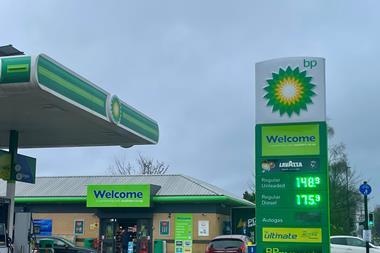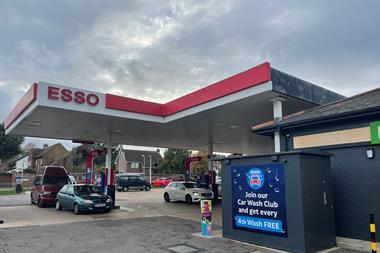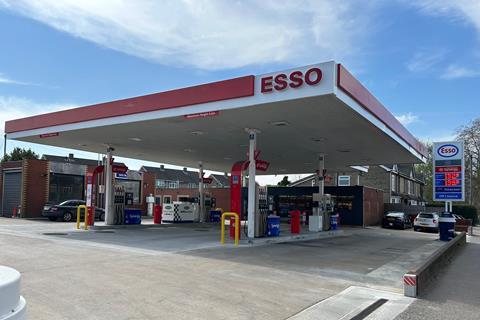
Tom Highland’s new site in St Neots, Cambridgeshire, may not be big enough to replicate his award-winning nearby Childerley Gate Service Station, but it takes inspiration from that forecourt, with the shop having a cosy yet comprehensive feel, as we found on a recent visit.
The Esso-branded station, fresh from extensive refurbishment, sits on the main road in the middle of the town. As we pull up we find Tom chatting to a technician working on an AdBlue pump, fixing a teething problem the likes of which will be familiar to anyone who has undertaken such major works.
Tom extols the skills of this technician, a specialist forecourt electrician who’s “the best in the business”, fixing issues other sparkies might struggle with.
This level of detail sets the tone for our conversation, which soon turns to concrete, Tom explaining that when the new hardstanding was poured at St Ives, the manholes and tank fill-points were finished with small, localised concrete surrounds laid around them so that if any future issues require them to be dug out, the main slab won’t be damaged.
Tom chose a local concrete firm for this job, a principle that runs through many of the decisions made when choosing shop suppliers.
“We have a lot of local suppliers”, he explains, “and that makes us unique in this area. We work with local bakeries for fresh bread every day, sandwich fillings come from another local family business that no one else in the area is using for their food to go. It’s the same with cakes: we have them delivered in every two days, freshly made, the sausages and bacon come from a butcher rather than a wholesaler. We’re really trying to drive that quality.”
Turning to the shop itself, while it’s not a huge building, Tom has managed to fit a lot in without making it feel cramped. That might have something to do with the tasteful décor, which, with its blue panelling around the till point and flagstone floor finishes, has a farmhouse kitchen vibe, the subtle LED strip lights making one wonder how we used to deal with the industrial starkness that fluorescent tubes once gave shops.
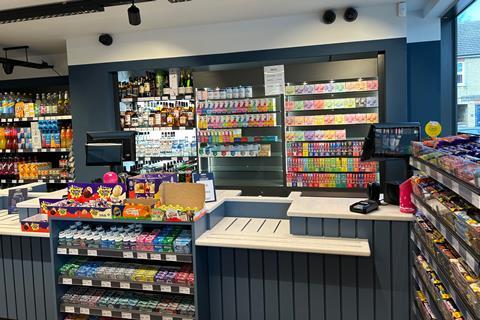
While building work on the site has finished there are still a few bits and bobs to do. A new shop fascia is due to be installed imminently, while the equipment for the bakery has yet to be fitted. Nonetheless, it’s an impressive look for a high footfall (circa 6.5mlpa) site with a small footprint. Sure, there may not be the space for the farm shop and on-site butcher Highland’s Childerley Gate forecourt features, but St Neots feels high-end and distinctive, and the philosophy behind Childerley is clearly transferrable to smaller locations.
“The site needs to look quality, feel quality and offer premium products, but not necessarily sell goods at a premium price,” Tom explains.
Returning to the forecourt itself, the hand car wash operating to the rear of St Neots on the day of our visit doesn’t quite gel with the overall Highland philosophy, but Tom explains the lease on this runs out within a month.
“They’re nice fellas, don’t get me wrong, and it works for some locations, but it’s not what we’re going for here.” He adds, though, that he was happy extend the car wash company’s lease by a month so they could find a new site and use up all their chemicals, which seems like a good way of doing business.
Phase two of the development will see that area of the forecourt redeveloped and a new jet wash bay installed. “We thought the days of people wanting to wash their own cars were gone”, Tom says “but our jet washes are really popular. The trade we’ve hit at Childerley Gate exceeded what we expected. That’s given us confidence to go back to it – if it’s premium equipment with non-harmful chemicals and the snow foam that everyone likes.”
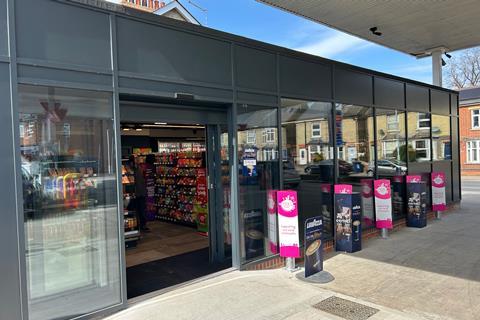
Also set for a makeover is the rollover car wash, which Tom says Highand Group will renew partly as it’s already in situ so planning isn’t needed – though even here, his eye for detail is clear to see, as he explains that as good as jet washes are, they’re not for everyone. “An elderly person who doesn’t want to get out of their car and do it themselves for example – a rollover perfect for them.”
“We’re going to put a brand new Adriateh rollover in – really high end, in my opinion the best in the industry. It’s a big family firm from Croatia and they’re petrol heads; they really care about cars.”
Tom joined the family business, started by his father in 1985, after the five-year stint as a carpenter that he embarked on after leaving school, beginning his forecourt career on the shop floor as a sales assistant, before steadily taking on more senior roles.
“I’ve always been told that if you want to run a business, you need to know how to do everything. Dad’s motto is ‘don’t ask anyone to do something you wouldn’t do yourself.’ At the time I did get it, but I get it even more now. I’m not the best at everything, but I know how to fix most issues.”
Given this grass-roots grounding, it’s unsurprising that Tom is alert to the industry’s challenges, and our conversation soon turns to tougher topics, prompted by the recent break-in at his forecourt near Royston.
“There’s a big problem with the abuse frontline retail staff can get. Just this morning I went to one of my sites, and one of the cashiers was in the kitchen crying, with the manager comforting her.
Tom says “a fully grown, large male in his 40s” had subjected the cashier to significant threats and abuse. “I won’t use the language he used, but this was a fully grown male to a young female, and he left laughing. It’s gone to police, and they might do something about it.”
“No one, no matter what they earn, should have to put up with this. It’s disgusting”, he says, adding that his shops are never single-manned during the day, and that he’s considering implementing 24-hour opening with night-hatch service to prevent break-ins, despite this not necessarily being commercially justified.
This was not an isolated incident, either, Tom says, relaying another incident that saw customers mindlessly damage and steal stock, while adding that he has had to replace one site’s bathroom fittings twice within the last year due to vandalism.
His honesty about this challenging aspect of the sector seems all the more necessary given data from the Association of Convenience Stores indicate retail workers suffered 1.2 million incidents of abuse in the last 12 months.
Returning to more optimistic matters, Tom is now halfway to operating the 10 forecourts he aims to be running by the time he turns 40, giving him seven years – a target that seems reasonable as there might be a sixth site in the offing if things go the way he thinks they might.
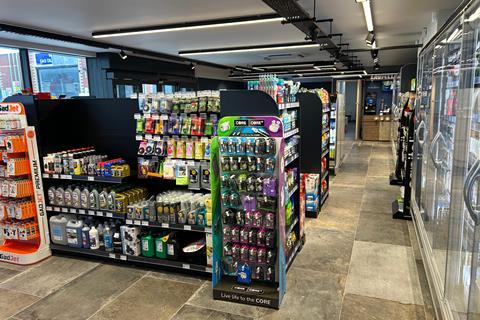
And while it might be easier to achieve 10 forecourts more quickly by going down the commission-operator route, that doesn’t fit in with the business model he’s committed to building.
“We fully self-manage everything, and that’s a lot – we have well over 100 staff – but having control over the quality, the customer service and the whole image of the site is what we want.
“The brand I’m trying to build and the quality of forecourts I’m trying to build, I need to make sure that every forecourt I buy fits that mould, and that every forecourt I build is an improvement on the last.”
Given his eye for detail and enthusiasm for the sector, not to mention the affinity he clearly has for the people who work with him, it’d take a brave man to bet against Tom achieving those goals.








